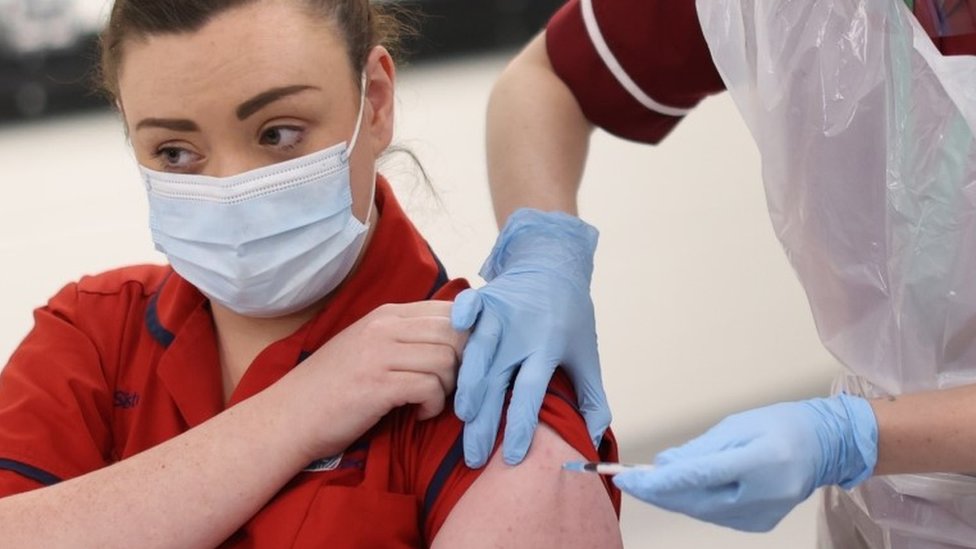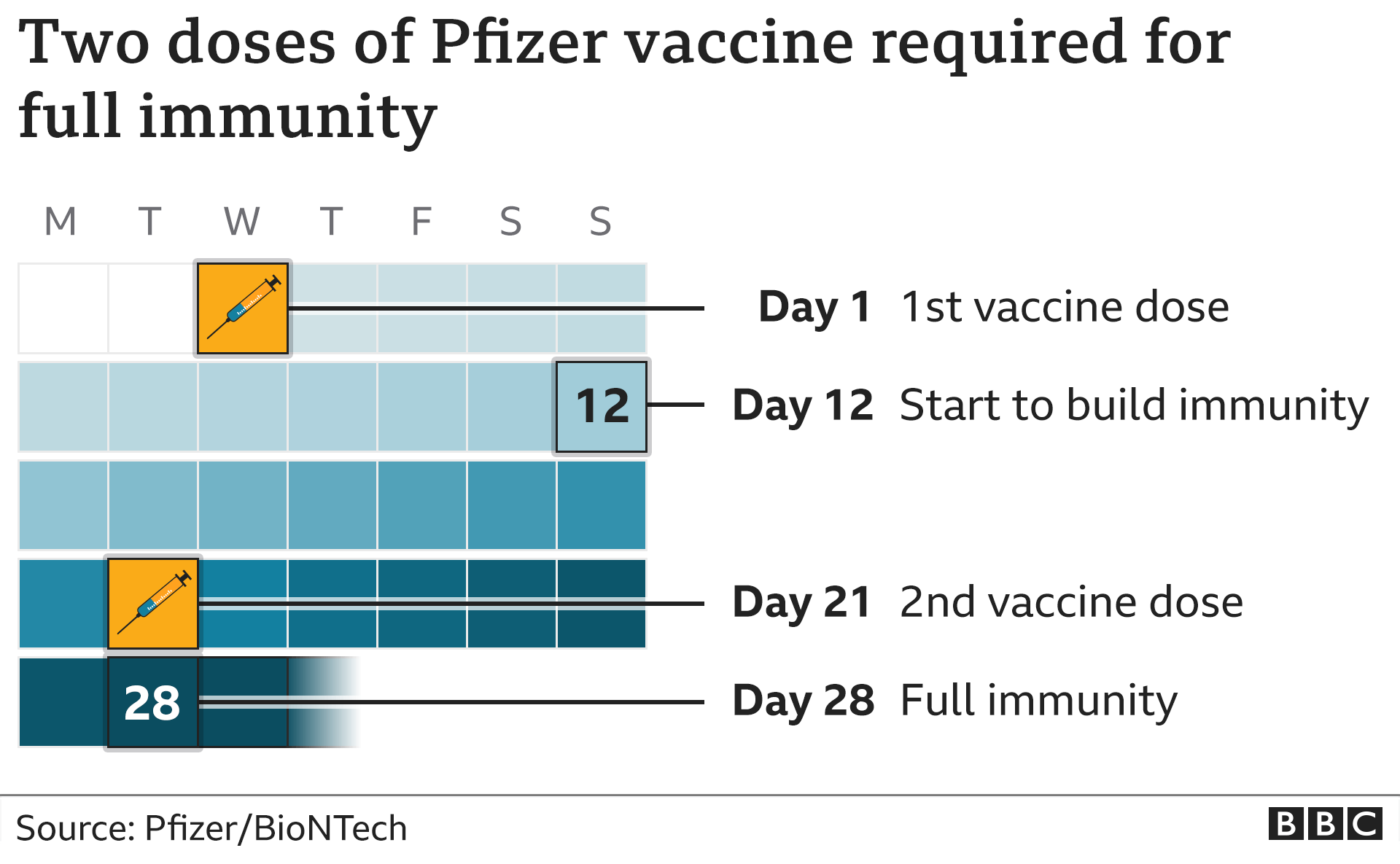A UK grandmother has become the first person in the world to be given the Pfizer Covid-19 jab as part of a mass vaccination programme. Margaret Keenan, who turns 91 next week, said the injection she received at 06:31 GMT was the "best early birthday present". It was the first of 800,000 doses of the Pfizer/BioNTech vaccine that will be dispensed in the coming weeks.
Up to four million more are expected by the end of the month.
Hubs in the UK are starting the rollout by vaccinating the over-80s and some health and care staff.
Senior NHS sources told the BBC "thousands of vaccinations" had taken place across the UK on Tuesday. Dubbing the day "V-day", Health Secretary Matt Hancock said it was "a tribute to scientific endeavour and human ingenuity and to the hard work of so many people.
"Today marks the start of the fightback against our common enemy, the coronavirus," he said.
Prime Minister Boris Johnson, on a visit to a London hospital to see some of the first people getting the jab, said getting vaccinated was "good for you and good for the whole country". Scotland's First Minister Nicola Sturgeon said: "Today we should all allow ourselves a smile - but we must not drop our guard." On Tuesday, the UK government reported a further 616 people had died within 28 days of a positive test, taking the total, by that measure, to 62,033. A further 12,282 people tested positive for the virus. Second in line for the jab at University Hospital in Coventry was 81-year-old William Shakespeare from Warwickshire. At University Hospital, Coventry, matron May Parsons administered the very first injection to Ms Keenan.
"I feel so privileged to be the first person vaccinated against Covid-19," said Ms Keenan, who is originally from Enniskillen, Co Fermanagh.
"It's the best early birthday present I could wish for because it means I can finally look forward to spending time with my family and friends in the new year, after being on my own for most of the year.
"My advice to anyone offered the vaccine is to take it. If I can have it at 90, then you can have it too," she added.
Prof Stephen Powis, national medical director of NHS England, who witnessed the "historic moment", said: "We couldn't hug her but we could clap, and everybody did so in the room."
 An emotional Sister Joanna Sloan said she had been looking forward to the vaccine for so long
An emotional Sister Joanna Sloan said she had been looking forward to the vaccine for so longThroughout the day, patients and health workers at some 50 hospitals around the UK have been getting the jab
The Oxford/AstraZeneca vaccine has also been found to be "safe and effective", according to a paper published on Tuesday and assessed by independent scientists.
Speaking in the Commons, the health secretary stressed people did not need to apply for the vaccine. He said the NHS would be in touch with those eligible and urged them to "please step forward for your country".
Mr Hancock went on to warn that there was "still a long march ahead", saying there were "worrying signs" of the virus growing in Essex, London and Kent.
New data released by national statisticians for the week ending 27 November showed that of the 14,106 deaths registered in the UK, nearly 3,400 involved Covid. This is 20% higher than the five-year average but similar to the percentages seen in the past two weeks.
NHS England chief executive Sir Simon Stevens called the first vaccinations "remarkable achievement", but cautioned it was a "first step" and "incredibly important" people continued to act sensibly.
On a visit to London's Guy's Hospital, the prime minister spoke to 81-year-old Lyn Wheeler, who was the first to receive the vaccine there.
"It is really very moving to hear her say she is doing it for Britain, which is exactly right - she is protecting herself, but also helping to protect the entire country," Mr Johnson said. Earlier, he thanked the NHS, volunteers and "all of the scientists who worked so hard to develop this vaccine". Labour's shadow health secretary Jon Ashworth said it was "absolutely fabulous" to see people getting the vaccine and thanked everyone involved in making it happen.

Some 800,000 doses of the Pfizer/BioNTech vaccine have been secured by the government to be administered in the coming weeks - although vaccination is not compulsory.
Orders have been placed for 40 million in total - enough for 20 million people, as two courses are needed. However, most supplies are not expected to become available until next year.
Mr Hancock said he expected it to take "several weeks" to get the first group of health workers, care staff and over-80s vaccinated.





